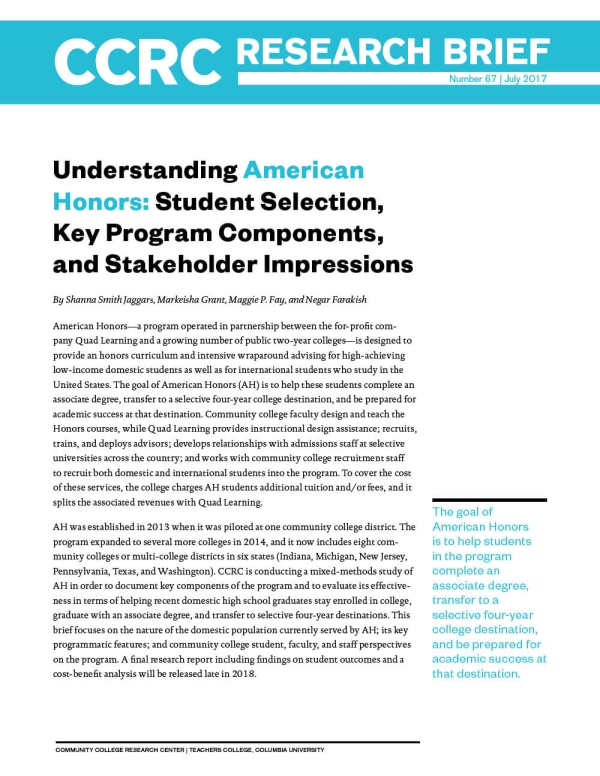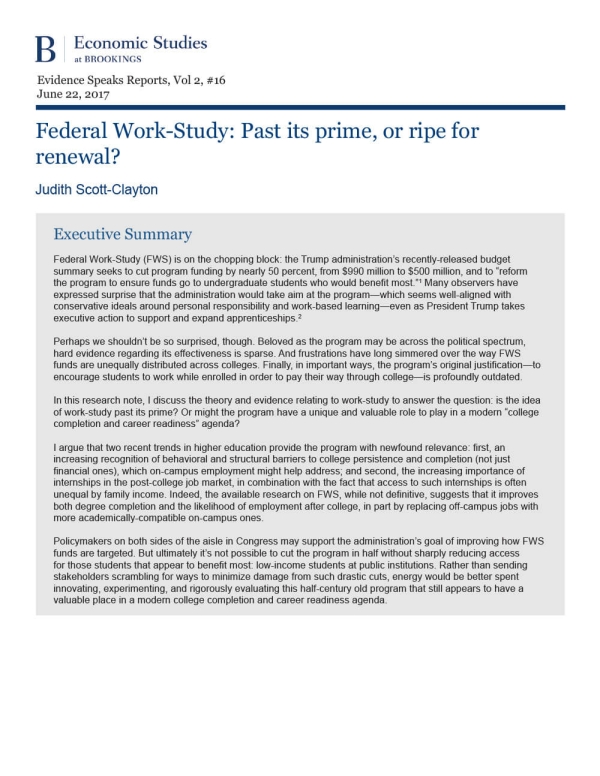What Happens to Students Who Take Community College “Dual Enrollment” Courses in High School?

This report uses student enrollment and degree records from the National Student Clearinghouse to examine who enrolls in community college dual enrollment courses and what happens to them after high school.
Simplifying and Modernizing Pell Grants to Maximize Efficiency and Impact

With the goal of informing federal higher education policy decisions, this brief for the Urban Institute suggests federal student aid reform that simplifies the eligibility and application process.
Colleges’ Experiences Integrating Support Services for Military Veterans

This review draws from the experiences of colleges awarded the Kisco Foundation’s Kohlberg Prize to highlight the practical and philosophical challenges involved in creating integrated services for student veterans.
Understanding American Honors: Student Selection, Key Program Components, and Stakeholder Impressions

Based on a mixed-methods study at six colleges, this brief examines the domestic population served by American Honors; its key programmatic features; and community college student, faculty, and staff perspectives on the program.
Federal Work-Study: Past Its Prime, or Ripe for Renewal?

This Brookings report discusses what role the Federal Work-Study program might have in a modern “college completion and career readiness” agenda.
